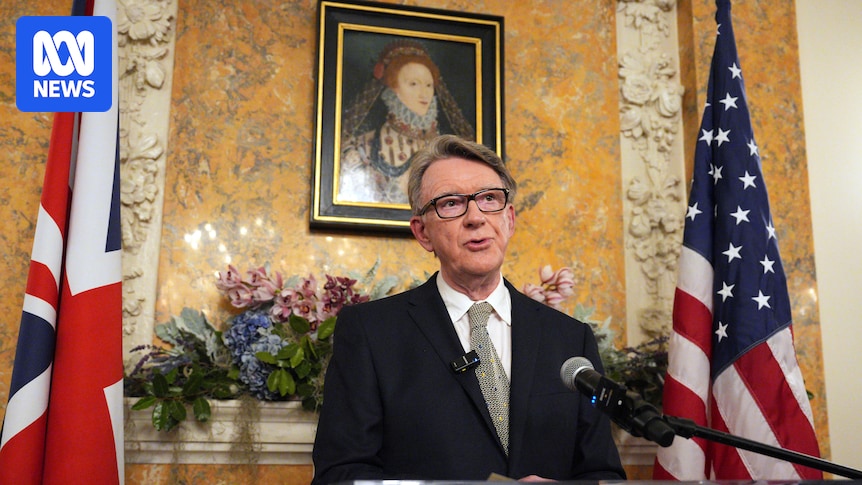
British Prime Minister Keir Starmer has dismissed Peter Mandelson, the United Kingdom’s ambassador to the United States, following revelations of his connections with convicted child sex offender Jeffrey Epstein. The dismissal was announced after historic emails between Lord Mandelson and Epstein were made public, casting a new light on their relationship.
The announcement was made in the House of Commons on Thursday by Foreign Office Minister Stephen Doughty. The decision came in the wake of The Sun newspaper publishing emails that depicted Lord Mandelson urging Epstein to “fight for early release” before his 2008 sentencing for soliciting prostitution from a minor. In one email, Mandelson expressed his admiration for Epstein, stating, “I think the world of you.”
Background and Context
The emails, which surfaced after the House Oversight Committee released a 50th birthday album compiled for Epstein in 2003, reveal a closer relationship between Mandelson and Epstein than was previously understood. In the album, Mandelson referred to Epstein as “my best pal” in a handwritten note. These revelations have prompted the British government to reassess the appropriateness of Mandelson’s diplomatic role.
The British Foreign Office issued a statement noting that the emails demonstrate the relationship’s “depth and extent” was “materially different from that known at the time of his appointment.” This development has raised questions about the vetting process for high-level diplomatic appointments.
Implications and Reactions
The dismissal of a high-profile ambassador like Mandelson is a significant political move for Prime Minister Starmer, who has been under pressure to maintain transparency and integrity within his administration. This decision underscores the government’s commitment to distancing itself from any affiliations with Epstein, whose network of influential connections has been under scrutiny since his conviction and subsequent death in 2019.
Political analysts suggest that this incident could lead to more rigorous background checks and transparency in the appointment of diplomats and other officials. The Foreign Office’s swift response reflects an urgent need to address public concerns over the integrity of its representatives abroad.
Expert Opinions and Historical Parallels
Experts in diplomatic affairs note that while the dismissal of an ambassador is rare, it is not unprecedented. Historically, ambassadors have been recalled or dismissed due to personal misconduct or political controversies. This case, however, highlights the growing influence of digital communications and the lasting impact of past associations.
“The digital age has made it increasingly difficult for public figures to escape past associations. Transparency and accountability are more critical than ever,” said Dr. Emily Harrington, a professor of international relations at the University of London.
Comparisons have been drawn to previous diplomatic controversies, such as the 2010 WikiLeaks scandal, which exposed confidential communications and led to diplomatic strains. The current situation with Mandelson adds to the ongoing discourse about privacy, accountability, and the public’s right to know.
Looking Ahead
As the British government seeks to restore confidence in its diplomatic corps, the focus will likely shift to implementing more stringent vetting procedures for future appointments. Meanwhile, the broader implications of the Epstein scandal continue to unfold, with potential repercussions for other public figures linked to him.
Prime Minister Starmer’s decisive action may serve as a precedent for handling similar situations in the future, emphasizing the importance of ethical conduct and transparency in public service. As the story develops, the international community will be watching closely to see how the UK navigates this diplomatic challenge.






